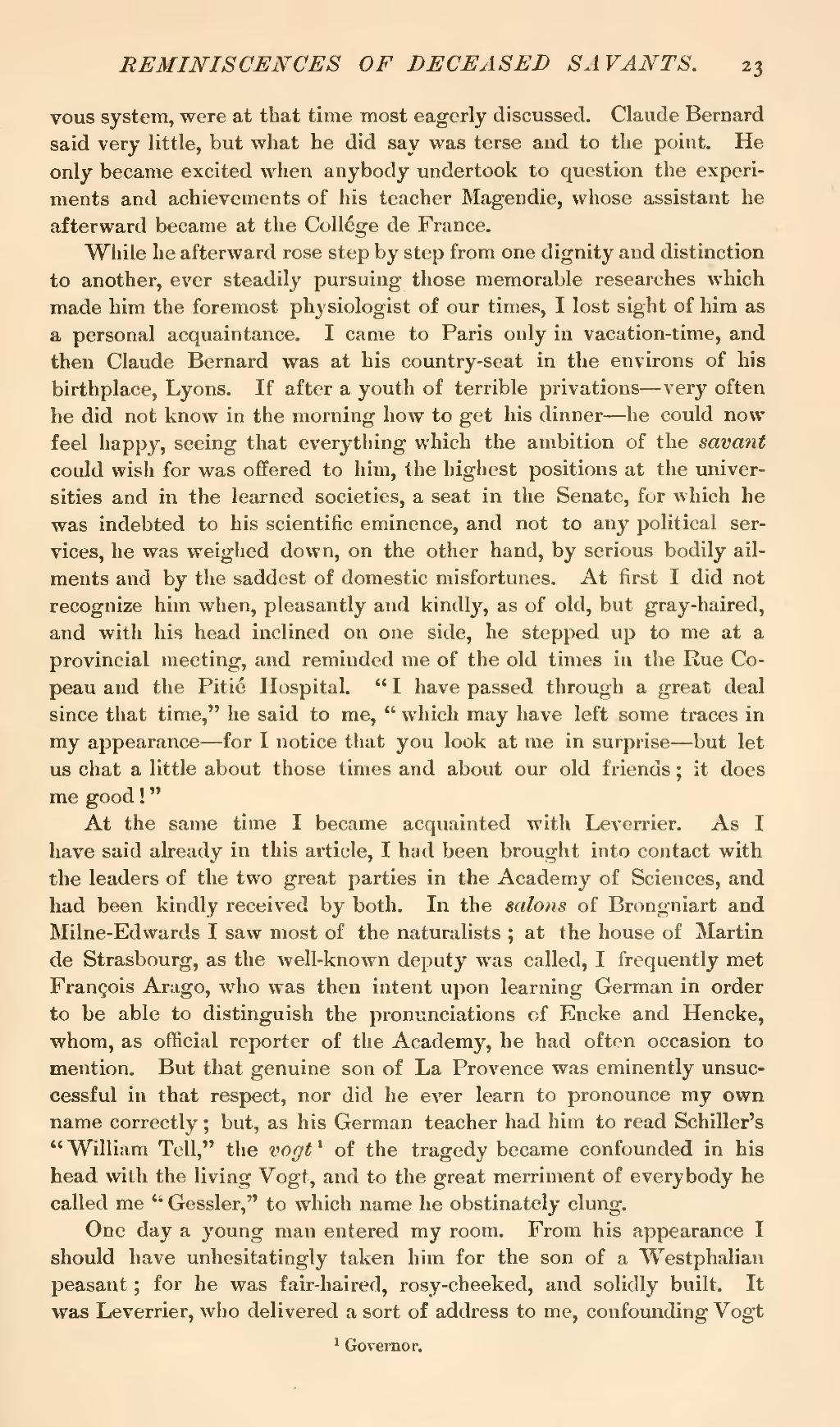vous system, were at that time most eagerly discussed. Claude Bernard said very little, but what he did say was terse and to the point. He only became excited when anybody undertook to question the experiments and achievements of his teacher Magendie, whose assistant he afterward became at the Collége de France.
While he afterward rose step by step from one dignity and distinction to another, ever steadily pursuing those memorable researches which made him the foremost physiologist of our times, I lost sight of him as a personal acquaintance. I came to Paris only in vacation-time, and then Claude Bernard was at his country-seat in the environs of his birthplace, Lyons. If after a youth of terrible privations—very often he did not know in the morning how to get his dinner—he could now feel happy, seeing that everything which the ambition of the savant could wish for was offered to him, the highest positions at the universities and in the learned societies, a seat in the Senate, for which he was indebted to his scientific eminence, and not to any political services, he was weighed down, on the other hand, by serious bodily ailments and by the saddest of domestic misfortunes. At first I did not recognize him when, pleasantly and kindly, as of old, but gray-haired, and with his head inclined on one side, he stepped up to me at a provincial meeting, and reminded me of the old times in the Rue Copeau and the Pitié Hospital. "I have passed through a great deal since that time," he said to me, "which may have left some traces in my appearance—for I notice that you look at me in surprise—but let us chat a little about those times and about our old friends; it does me good!"
At the same time I became acquainted with Leverrier. As I have said already in this article, I had been brought into contact with the leaders of the two great parties in the Academy of Sciences, and had been kindly received by both. In the salons of Brongniart and Milne-Edwards I saw most of the naturalists; at the house of Martin de Strasbourg, as the well-known deputy was called, I frequently met Francois Arago, who was then intent upon learning German in order to be able to distinguish the pronunciations of Encke and Hencke, whom, as official reporter of the Academy, he had often occasion to mention. But that genuine son of La Provence was eminently unsuccessful in that respect, nor did he ever learn to pronounce my own name correctly; but, as his German teacher had him to read Schiller's "William Tell," the vogt[1] of the tragedy became confounded in his head with the living Vogt, and to the great merriment of everybody he called me "Gessler," to which name he obstinately clung.
One day a young man entered my room. From his appearance I should have unhesitatingly taken him for the son of a Westphalian peasant; for he was fair-haired, rosy-cheeked, and solidly built. It was Leverrier, who delivered a sort of address to me, confounding Vogt
- ↑ Governor.

